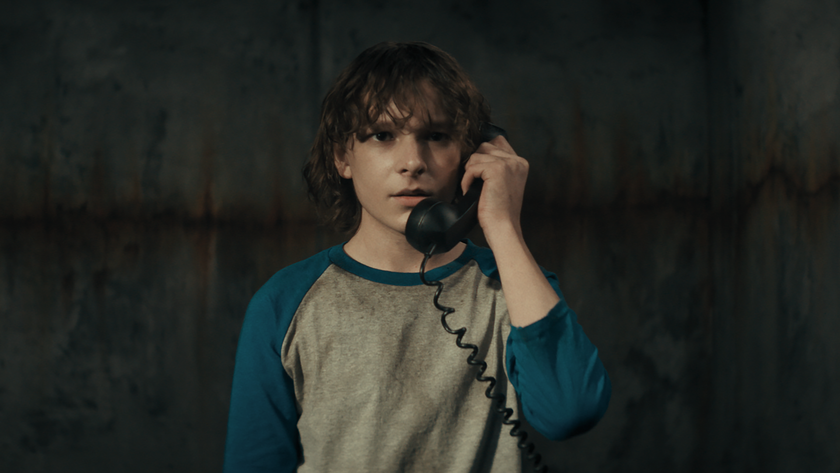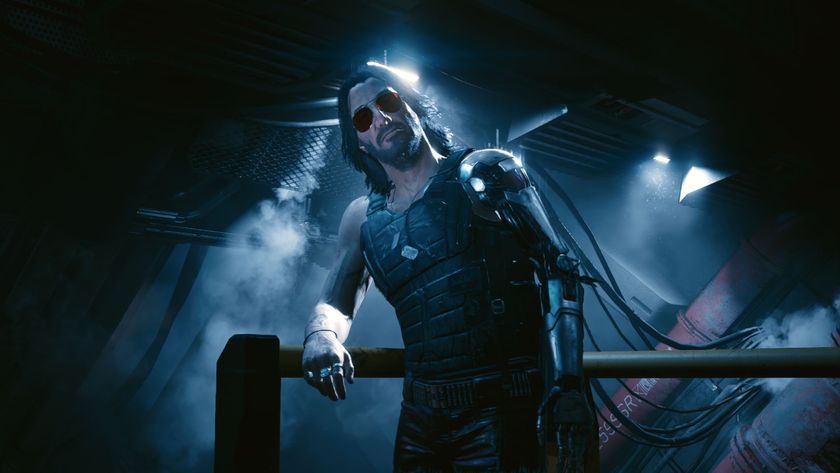The Story Behind Citizen Kane
How the perennial list-topper was born...
Is Citizen Kane the most written-about film in history?
It’s certainly plausible, at least in academic arenas: blustery, jargon-strewn essays leap from the pages of pretty much any film theory text your nearest groaning library shelf or bandwidth-guzzling database has to offer.
It’s also possibly the most lied-about film in history, in the sense that it often appears cheekily high up on lists of ‘movies we say we’ve seen’.
Fair enough, too: we're talking about one of the very few films to be credited with such near-parodic levels of cultural importance, admitting to not having seen it feels like turning up at the ambassador’s reception wearing a barrel held up with braces.
Whichever Kane camp you fall into - and let’s face it, most of us are likely to be squatting somewhere in between - we've all heard an awful lot about the movie itself.
What we're interested in here is a bit of background info; a handy leg-up to potential pub quiz glory. How did the project first come about, and who were the major players in the saga leading up to it?
Indeed, what exactly was the story behind Citizen Kane ?
Sign up for the Total Film Newsletter
Bringing all the latest movie news, features, and reviews to your inbox
Next: Too much, too soon? [page-break]
Orson Welles was a mind-imploding 25 years young when he co-wrote (controversial; more on that later), directed and starred in his 1941 magnum opus.
That fact is in itself as depressing as it is inspiring - and not purely for green-eyed reasons.
No, it's faintly depressing because Kane would of course be held up retrospectively as Welles' greatest career achievement - in this regard, a more clear-cut example of someone blowing their creative load prematurely is pretty damn hard to dredge up.
And yet, ironically, the film's initial failure to generate a decent profit meant it effectively derailed his still-nascent Hollywood career.
Come to think of it, Welles' debut feature experience proved to be very much a case of 'damned if you do, damned if you don't'...
Next: Westward ho! [page-break]
Prior to being lured westwards by RKO Studios bosses Nelson Rockerfeller and George J. Schaefer, the indecently young Welles had already established a pretty stellar reputation on the New York theatre circuit.
At the time, this afforded him far greater credibility than the movie industry - then widely viewed as inherently lightweight and artistically irrelevant - ever could.
Popular though their frivolous output was, Rockerfeller and Schaefer felt that bagging Welles - whose highly marketable maverick streak had recently made global headlines due to that notoriously convincing War Of The Worlds radio recital - would supply a much-needed boost to RKO's feeble artistic credentials.
Such was Welles’ reluctance to take what he saw as a major downward career step, though, he rebuffed their shameless wooing on more than one occasion.
Ultimately, however, the one deal such a precocious talent couldn’t refuse was the one deal that first-time feature directors are almost never offered: unchecked creative control over his debut project.
Eventually, Welles' hardball game paid off, and this is precisely what he was offered in 1939. A few short weeks later, he was renting an apartment in Hollywood.
Next: Under pressure... [page-break]
Citizen Kane wasn’t actually Welles’ first choice for a debut tinseltown project. He’d originally wanted to shoot a movie adaptation of Joseph Conrad's Heart Of Darkness , but his wildly optimistic budgetary requirements rendered it a no-go from the opening pitch.
Being told his initial plan wasn’t feasible was a fair old slap in the face for the golden boy, especially after all the bowing and scraping involved in coaxing him away from New York.
After this starting-grid setback, it was somewhat out of desperation - and largely to prove to Hollywood’s numerous raised eyebrows that he WAS worthy of all the fuss - that he settled rather hurriedly on Kane .
Clearly, as the focus of so much attention, the heat was on the young firebrand to deliver. This in part contributed to the later controversy over who actually penned the film.
A far more telling factor in that murky chapter of Kane ’s history, though, was the simple fact that Welles himself was already quite used to being gifted the full glare of the limelight...
Next: A household name... [page-break]
In fact, as a key asset of Mercury Theatre Company back in NYC, Welles had been actively encouraged to stamp his name boldly atop various productions he hadn’t actually created solo.
Much like Rockerfeller and Schaefer soon did in Hollywood, New York theatre bigwigs had evidently twigged that, thanks to his hysteria-inducing War Of The Worlds -as-reality-show terrorcast, the name Orson Welles - for better or worse - more or less guaranteed an audience buzz.
Arriving in tinseltown, and understandably dragging with him a somewhat swollen ego, Welles doubtless would’ve expected a similar sort of arrangement to continue into future projects.
It didn’t.
Notably, seasoned scriptwriter Herman Mankiewicz consistently staked a very vocal claim to both the original Kane concept and much of the early writing. Even more notably, the studio steadfastly backed him up.
Still, contested authorship was the least of Welles’ problems once his film was in the can. Far more pressing was the fact that the man who inspired the movie didn’t like it one bit - a man who, give or take, was pretty much as powerful and influential as the fictional Charles Foster Kane himself.
Next: The man behind the man... [page-break]
The biography of William Randolph Hearst bears so many similarities to that of Charles Foster Kane, it would've been as ludicrous then as it is now to deny that he provided direct inspiration for Welles and Mankiewicz's script.
Like Kane, Hearst was a multi-millionaire newspaper magnate; like Kane, he’d been thrust into money at an early age, and mucked around to the point of expulsion at several prestigious colleges before throwing his hat, almost on a whim, into the daily newspaper ring.
Moreover, Hearst had become a byword for so-called ‘yellow journalism’ (pushing scandal and gossip up the agenda, and happily dressing up rumour as fact when it suited his agenda) during his early circulation battles on the streets of New York.
It proved a ratings winner and Hearst’s flourishing empire gradually developed a stranglehold on the American news media, with ever-more-powerful tentacles extending deep into national politics and beyond.
In many ways, this gradual eroding of boundaries, as Welles saw it, at the highest levels of industry and influence was also the driving force for one of the key themes in Kane ; namely the potential for easy souring, when left in the wrong hands, of the much-vaunted American dream.
Next: Berating the baron... [page-break]
The fact that Mankiewicz was also on familiar - although no longer cordial - terms with Hearst underlined the latter's status as the inspiration for Kane (and, needless to say, simultaneously added credibility to the scriptwriter’s own authorship claims).
Not that the two would’ve remained on particularly great terms anyway, once Hearst got wind of Kane . Indeed, the outraged tycoon pulled every one of the countless lengthy strings at his fingertips in a concerted attempt to have the production shut down.
As if Welles’ implication that the American dream was being abused in society's upper echelons wasn’t offensive enough to Hearst, it was the more personal insights served up by Kane that really riled him.
The script was simply striking too close to home.
Showgirls, marriages, divorces, castles, financial crashes, rumoured instability behind closed doors and the rabid pursuit of exotic trinkets had all been defining factors in Hearst’s own chequered history.
There was also a clear political schism underpinning all this mutual antagonism: Hearst's views had drifted into pretty right-wing territory over the years.
The young idealist Welles, meanwhile, was still left-leaning at this point (although he too would gradually start to drift over towards conservatism later), with a reputation back in New York for actively supporting ethnic or religious minorities seeking careers in the arts.
Next: Cash for complicity... [page-break]
Hearst's most obvious means of killing off the project stemmed from the fantastically deep pockets of his friends, colleagues and reliants.
And, predictably, that's exactly where he went first. At one point towards the close of the already delayed Kane shoot, RKO were offered a hefty windfall from a conglomerate of other studios to hand over the picture in its entirety.
Needless to say, the would-be buyers weren't exactly looking to trim it down a bit and release it themselves. To their credit and our eventual benefit, RKO stood firm and refused.
By the time the dust finally settled on this titanic power struggle, the result was clear: Hearst had somehow, amazingly, failed in his increasingly tenacious drive to have the movie blocked. The rest is celluloid history - well, sort of...
Despite his defeat, Hearst had in fact succeeded in throwing numerous major spanners into the Kane works.
Not least problematic of these were some significant delays in getting the film out, and the relatively narrow theatrical release it was subsequent consigned to for having slipped off schedule.
Net result? A serious dent in box office return, and one which wasn't recouped fully until the mid-50s, when a retrospective swell of appreciation arose for the innovations explored by Welles and (especially) his celebrated cinematographer Gregg Toland.
This hit to profits, combined with the fact that Welles had been a hell of a gamble in the first place and a walking stress magnet ever since, did very little for the filmmaker's reputation among studio bosses of the day.
Next: Too much, too soon? [page-break]
Of course, the one crucial outcome to all this was that, in time, Kane gradually grew in stature to become almost universally revered as a true classic; a towering colossus of cinematic achievement.
Praise for the movie has long ranged from the loftily academic to the most humble and heartfelt. Eminent realist film theorist André Bazin was captivated by what he saw as a watershed slab of work:
"The few realistic vagabonds of the 20s and 30s," notes fellow theorist J. Dudley Andrew, "were vindicated after 1940 by a general shift in filmmaking practice toward the more realistic principles they relied on.
" Citizen Kane was, for Bazin, a film which marked this new stage of cinema, forever breaking the absolute shackles of the official look."
By contrast, a far less academic explanation of Kane' s appeal has also been offered up rather brilliantly by The Exorcist helmer Willian Friedkin:
"I didn't know there was such a thing as cinema until I saw Citizen Kane ," he claims. "It was 1956, I was 20...it was a Saturday afternoon, about noon. I stayed in the theatre for the rest of the day. I couldn't believe it. It was a revelation.
" Kane is to cinema what James Joyce's Ulysses is to literature. I was conscious almost immediately of the incredible use of image, sound, performance, editing, music and lighting to tell a unique story.
I guess I thought, 'Somebody actually did this and had the guts to do it.' That's how I came to cinema, and I still continue in the hope that someday I can make a film that will impress me as much as Citizen Kane did then."
So yeah - good on you, RKO, for not taking the fat cheque and washing your hands of Welles on the spot. It must've been tempting. It would've been easy.
And of course, with the full benefit of hindsight, it would also have been pretty much the worst decision in cinema history.
Like This? Then try...
- The Evolution Of John Malkovich
- Battle Royale: Gary Oldman Characters
- Movie By Movie: Steven Soderbergh
Sign up for our free weekly newsletter here .
Follow us on Twitter here .













